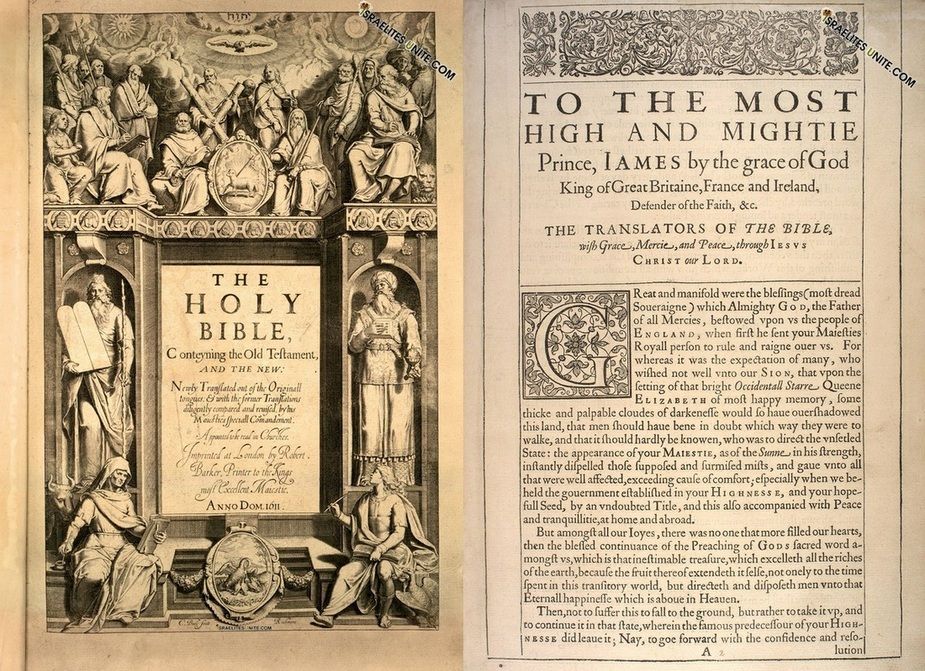The King James Bible

The King James Bible (King James Version, KJV, as it is mainly known in the USA), o Authorized Version (Authorized Version, as it is mainly known in the UK), is the translation of the Bible into English par excellence. Commissioned by the English King James I and published in 1611, represents the official version (or authorized) of the Anglican Church.
La KJV, although it is undoubtedly the best known, it was not the first translation of the Bible into English. The first attempts at rendering parts of biblical texts in Old English date back to the 7th century. Are approximately 450 partial or complete editions of biblical books prior to the invention of printing. Between these, noteworthy are the translations by John Wycliffe, of the fourteenth century, declared a heretic as belonging to the Lollard heretics; at William Tyndale, made between 1525 e 1534, banned from the newborn (1534) Anglican church; on Thomas Matthew, pseudonym of John Rogers, produced in 1537.
In the pre-KJ era (before King James), the official Anglican translation (Authorized Version) it was the Geneva Bible (1557-1560), while the English Catholics referred to the Bible of Douai or Reims (1582 NT, 1609 whole Bible), closely linked to the Vulgate.
The work was done gives 47 scholars, although they were originally contacted 54, which operated divided into 6 commissions: 2 and Oxford, 2 a Cambridge e 2 a Westminster.
In the 17th century, the vast majority of biblical versions were performed starting from the Latin text of the Vulgate (some Bibles are an exception, including that of Tyndale and Luther).
The undeniable merit underlying the realization of the KJV is the declared intent to carry out the translation starting from the original Hebrew-Aramaic texts. (Bromberg's Bible edition 1524-25) and Greeks (edition commonly called textus receptus by Erasmus of Rotterdam del 1515-16).
Immediate reference of the KJV, however, instead of the Bishops' Bible (as explicitly requested by King James) or the original texts was the Tyndale Bible. For the New Testament, at least 80% of the text comes unaltered from this version.
In particular, Tyndale had introduced some theological labels that departed from the Christian custom of the time and that will be taken up by Luther and the Protestant tradition. P.es. the Greek terms Priests, ekklesia, agape, immersion, were translated by Tyndale into English respectively with elder, 'Elderly’ (instead of the then common one priest, priest); congregation, 'congregation’ (instead of the then common Church, Church); love, 'love’ (instead of the then common one charity, 'charity'); washing, 'wash', (instead of the then common one baptism, 'baptism'). Some of those terms (washing, congregation) they were taken over by the KJV.
The edition of 1611 of the King James Version included the apocryphal books, known in the Catholic tradition as deuterocanonical books. According to the 39 articles, the doctrinal confession of the Anglican Church established in 1563, these books were considered non-canonical, but they had to be “read as an example of life and learning good habits”.
In the edition of 1661 the apocryphal texts were included in a special section of the KJV, between the end of the Old Testament and the beginning of the New Testament. From 1827 many editions omitted this section. Contemporary editions rarely include them.